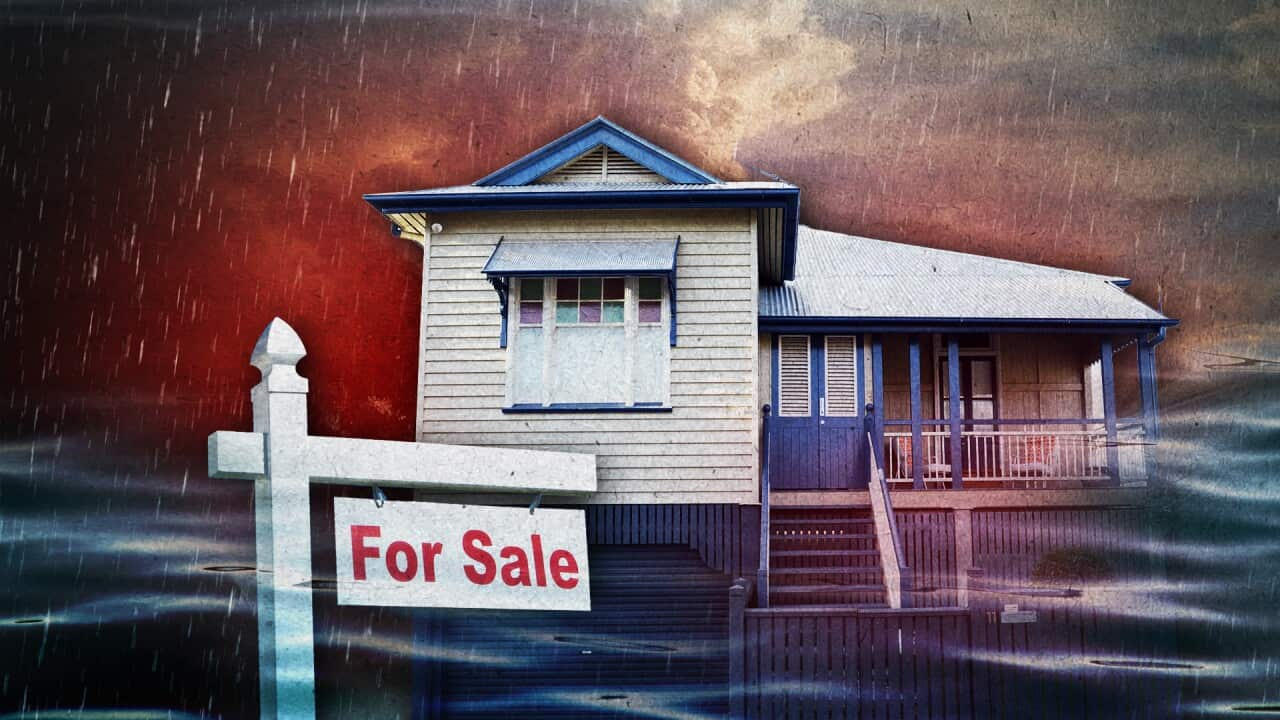Homeowners in flood zones are paying "a disaster penalty", with a new report from the Climate Council finding their houses have lost a combined $42.2 billion in value.
The report from Climate Council and PropTrack, a property data insights firm, found that despite house prices rising across the board, a typical three-bedroom, two-bathroom home in a flood zone is worth $75,000 less than a similar home outside of one.
Climate Council CEO Amanda McKenzie said the report showed that climate change is already having a "significant" impact on house prices in flood zones.
"It's really important for people to understand that these risks are here with us now, and it's already having a material impact on Australians, and that that impact is exacerbating inequality," she said.
Keep reading to find out if your region is at risk.
One in six homes is in a flood zone
Of an estimated 11.7 million homes in Australia, just over two million, or one in six, are at risk of flooding, according to the Climate Council.
Queensland and NSW were the states most affected, while Tasmania and the ACT were the least impacted.
The greatest value drop was in Brisbane, which has been hit by 10 flood events since 2010.
The report found houses in the flood-prone suburbs of Chelmer and Graceville, close to the Brisbane River, lost 10.6 per cent of their value, or around $303,000.
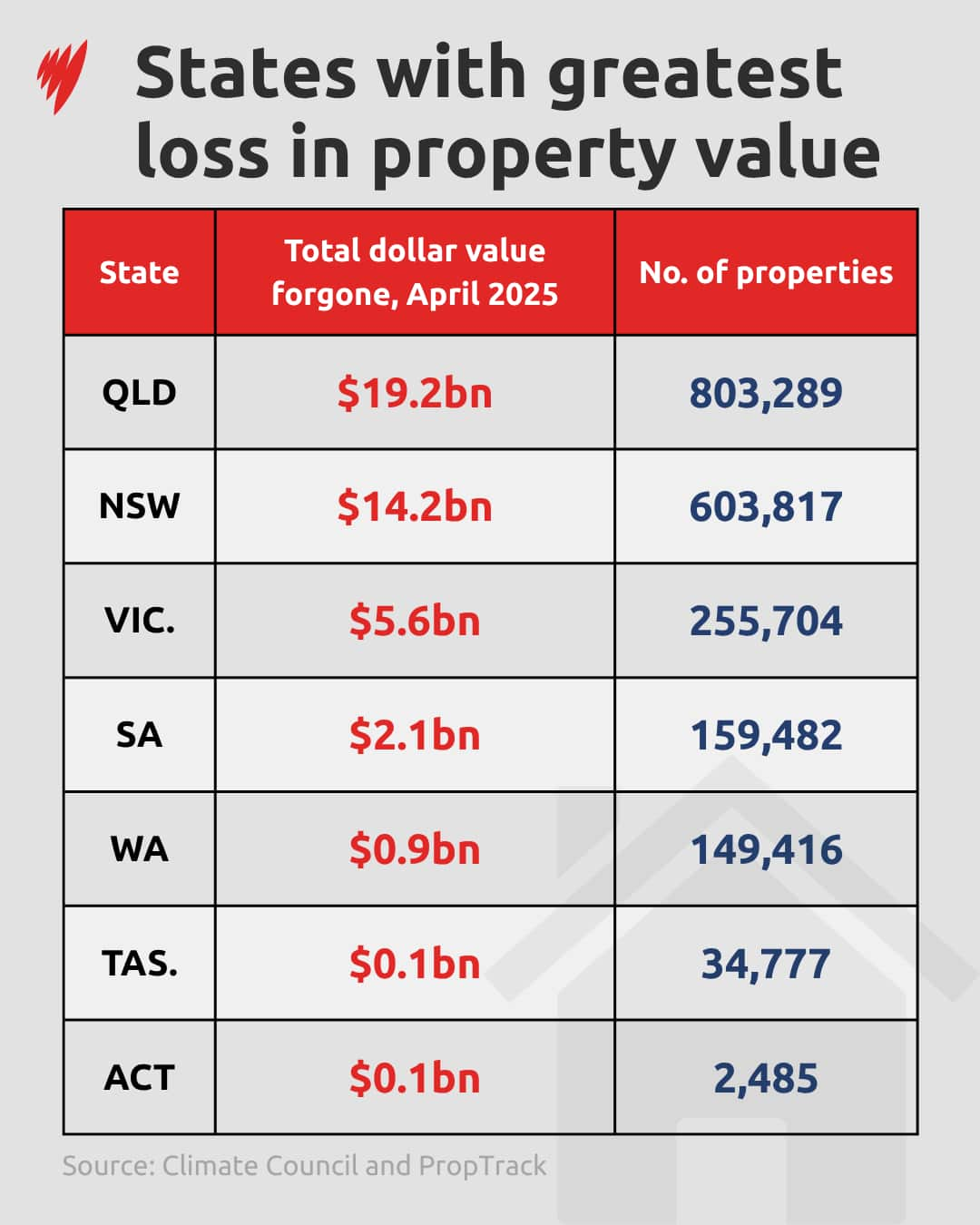
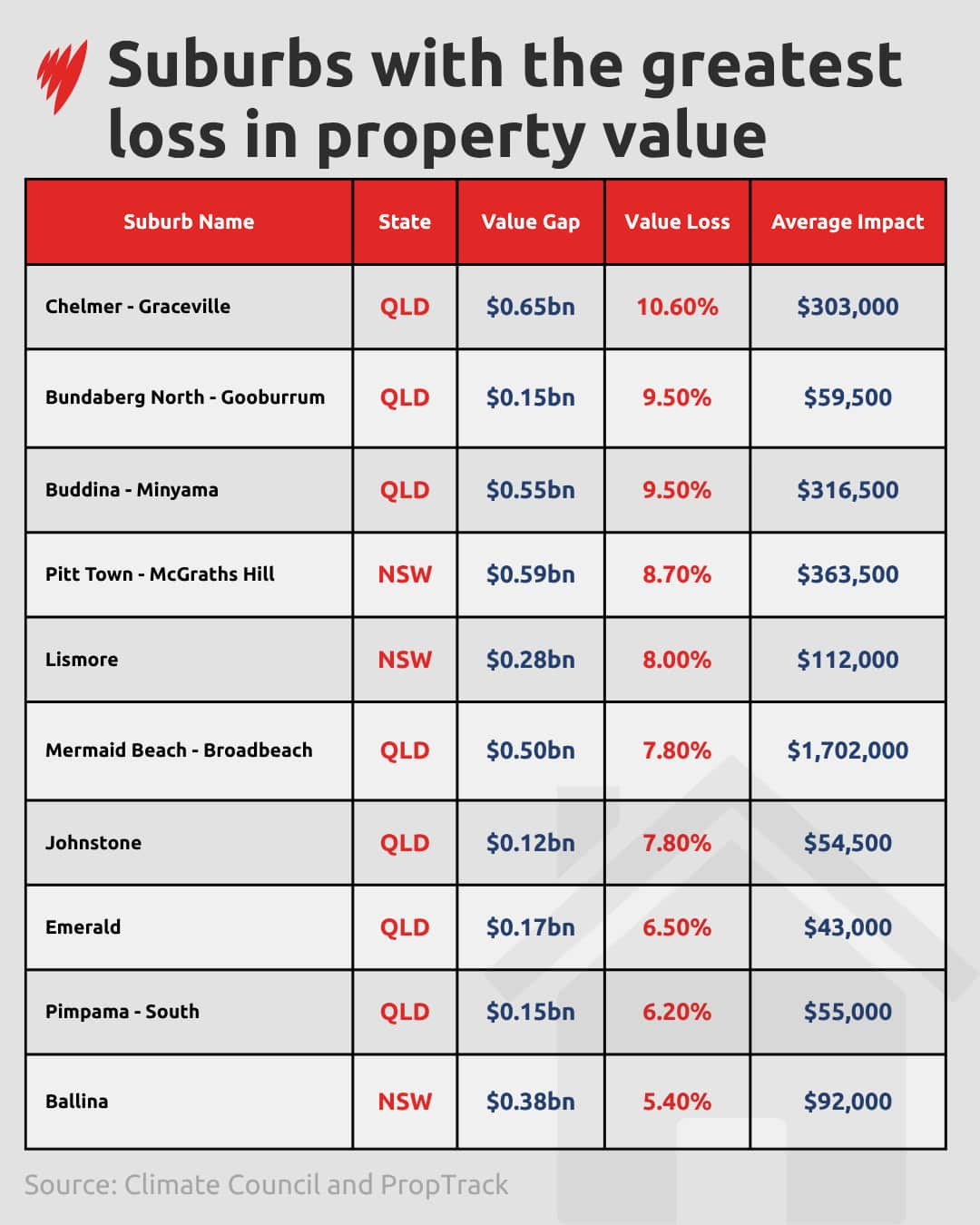
In western Sydney, a house in the adjoining suburbs of Pitt Town and McGraths Hill in the low-lying Hawkesbury catchment is worth $363,500 less than a house with no flood risk. That's a drop of 8.7 per cent in the area.
McKenzie said that while house prices may still rise in these regions, they are not growing as fast as houses that don't carry a flood risk.
"Growing house prices have masked the impact on flood-affected homes," she said.
The lure of cheaper homes
Amid a national housing crisis, McKenzie warned that there is no silver lining to climate change pushing house prices down.
"We've been asked a lot that, if these houses are worthless, isn't that a good thing?" she said.
However, McKenzie said the problem "compounds inequality".
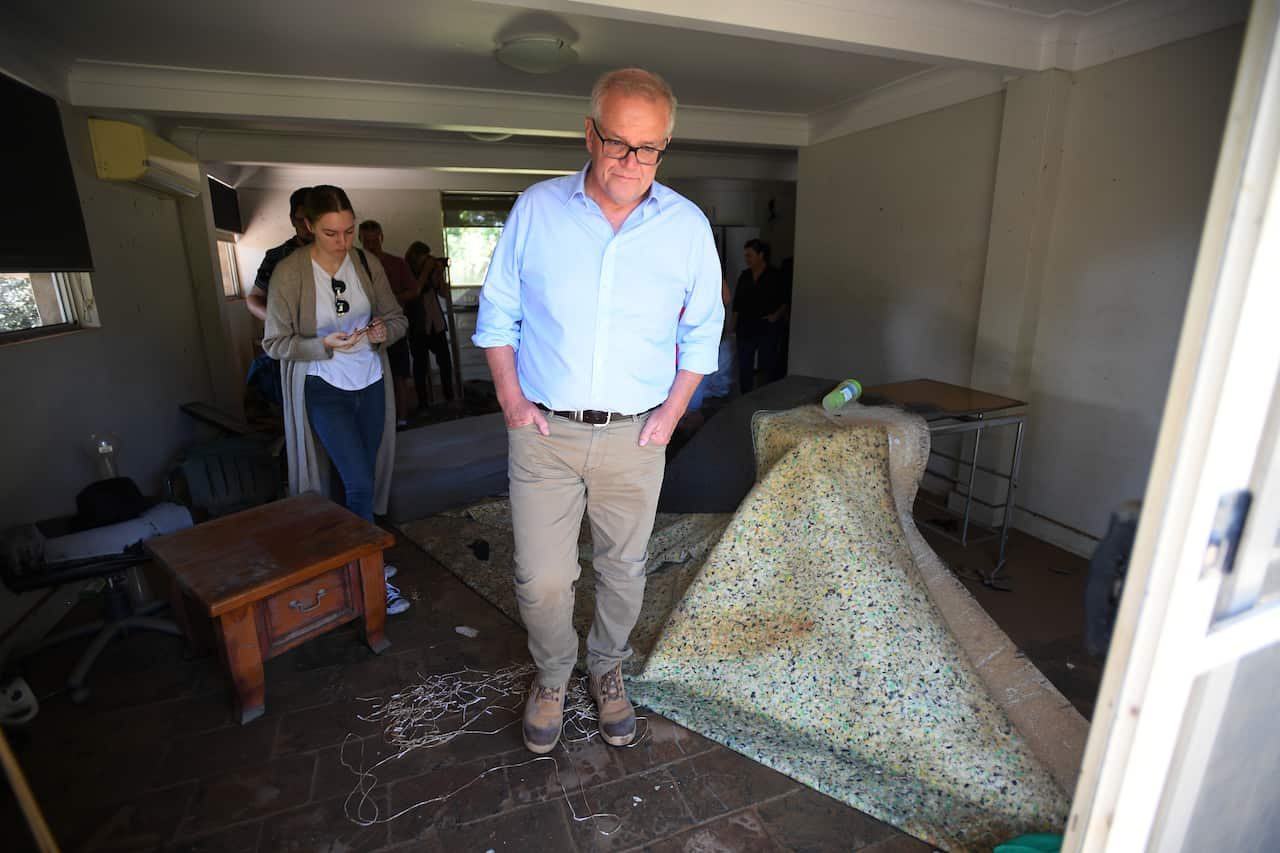
"In some of these regions where we've identified the flood risk being really high, they've been inundated multiple times within a five-year period," she said.
"If you're in a flood risk zone, you find it's harder to insure your house, or you can't insure your house. And so when a catastrophic flood comes, you have far less resilience to that flood event. You potentially can't rebuild your property."
Many of the regions are already lower socioeconomic zones, and McKenzie said people should not be lured by the promise of cheaper homes.
"People can become trapped," she said.
Richer areas not immune
Homes at the waterfront suburb of Mermaid Beach, once one of the most expensive places to buy on the Gold Coast, are valued 7.8 per cent lower due to flood risk.
This was despite only 16 per cent of properties being located in the flood zone. However, events such as ex-Tropical Cyclone Alfred, which hit the Gold Coast between February and March this year, contributed to the changing perception of Mermaid Beach.
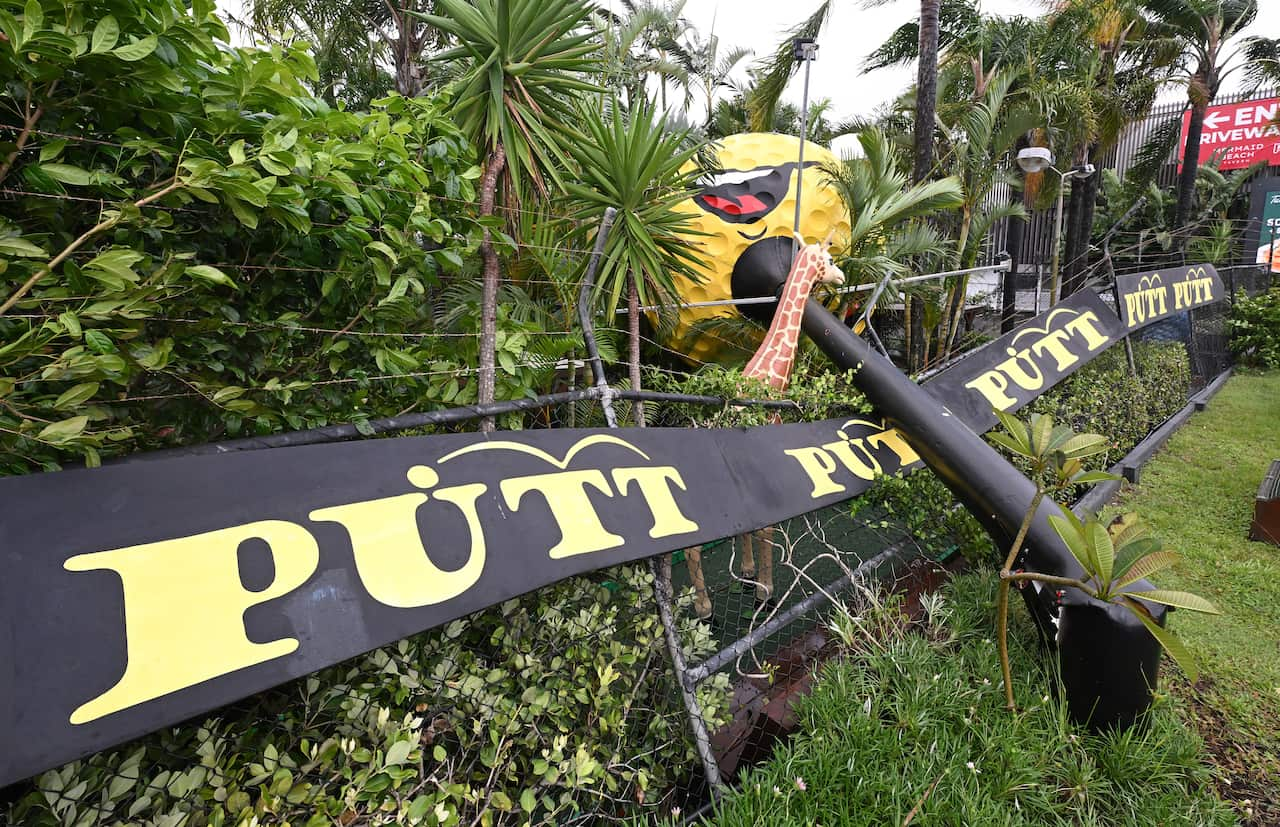
However, the report did find the drop in value was smaller in some of the more prestigious areas. Noosaville and Noosa Heads were two places where coastal vistas and an enviable beach lifestyle outweighed the risk of flooding.
McKenzie said this is likely because "people don't fully appreciate the risks yet".
"No matter what demographic the property is in, if your home is flood-affected, it has increased less than others."
Who should pay the penalty?
In September, the government-commissioned National Climate Risk Assessment found that by 2050, climate change could decrease property values by more than $600 billion.
Climate Council CEO Amanda McKenzie said this report showed "the material cost that people are wearing right now."
McKenzie called for changes to planning laws to stop future builds in flood prone areas.
"The government will need to buy back houses because it won't be feasible to live in those locations anymore. Those costs should be absorbed by the whole community because people didn't know that that was going to be the risk that they were exposed to."
McKenzie urged people considering buying in a flood zone to consider the future risks.
"But the most important thing is, of course, tackling the climate crisis, accelerating the rollout of renewable energy around the country, so that we can get off coal and gas."
"This isn't about a moral argument for a better future. I think it's important to communicate to the public and to politicians that this is an economic, material cost being experienced today."
For the latest from SBS News, download our app and subscribe to our newsletter.
